Dealing With Normative Gaze In Performance Art
- + BrowseBrowse →
- Home
NGinPA, a Berlin-based collective dealing with the "Normative Gaze" in Performance Art. It has been initiated by Anaïs Héraud and Katie Dunbar and has presented its first performance at the venue WestGermany in the frame of the Month of Performance Art Berlin. Specifically exploring gendered notions of both performance and perception in art, the group's diverse experiences and opinions come together to put forth new and challenging ideas. The piece is the product of a weeklong process of creative collaboration of NGinPA's performance artists, dancers musicians, writers, and visual artists hailing from Germany, Italy, Argentina, UK, USA, France, Poland, Romania, Australia and Israel. The collective was formed through a call put out specifically for the Month of Performance Art Berlin.
NGinPA performs
Westgermany/North Europe space
Month of Performance Art-Berlin
Photo: Alex Slota, Reinhard Fetzer
Performers: Shelley Etkin, Monica Gentille, Karina Villavicencio, Sophie Stephan, Anaïs Héraud-Louisadat, Katie Dunbar, Lady Gaby, Brigid Pasco
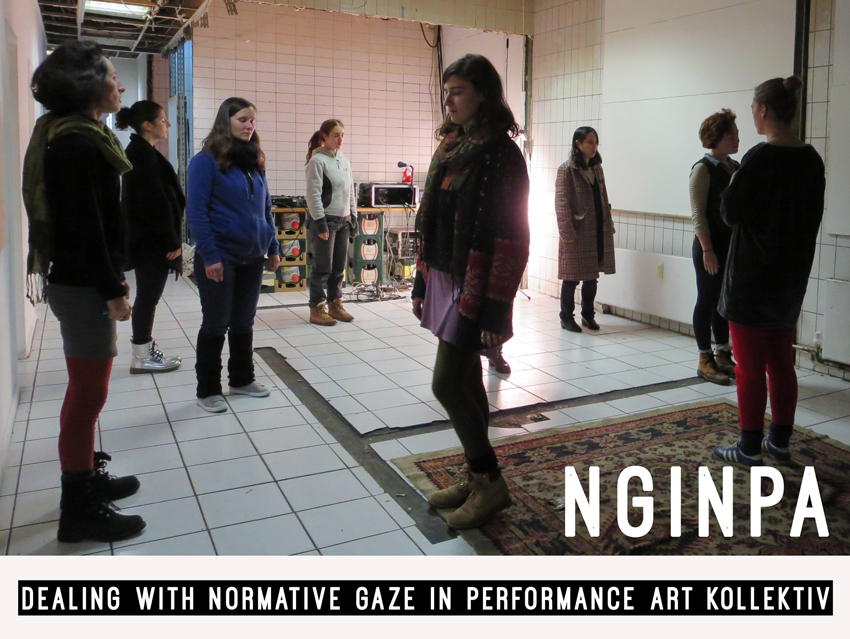
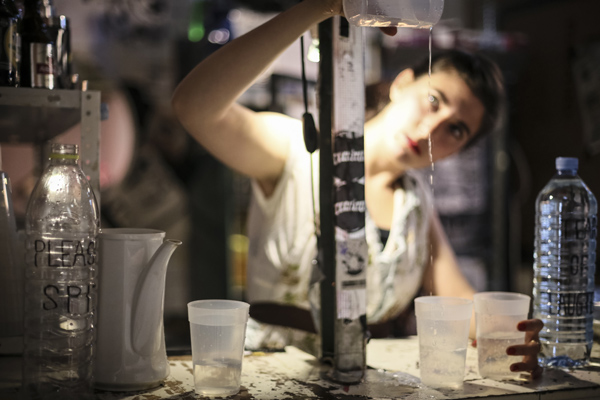
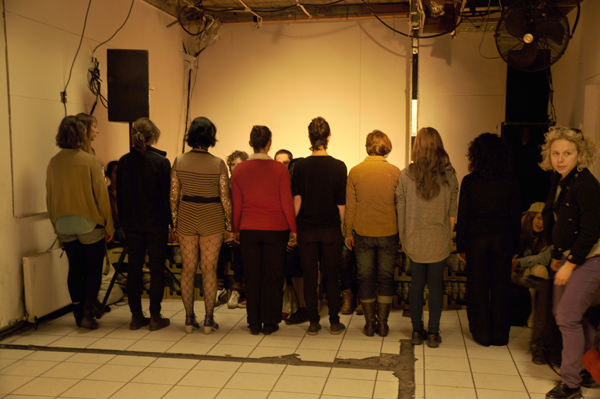
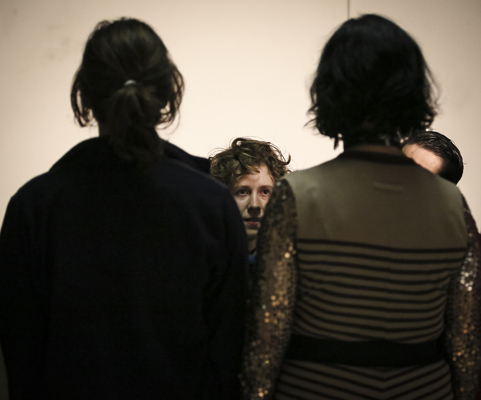
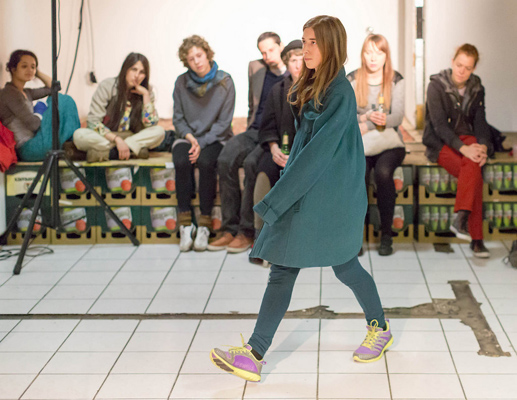
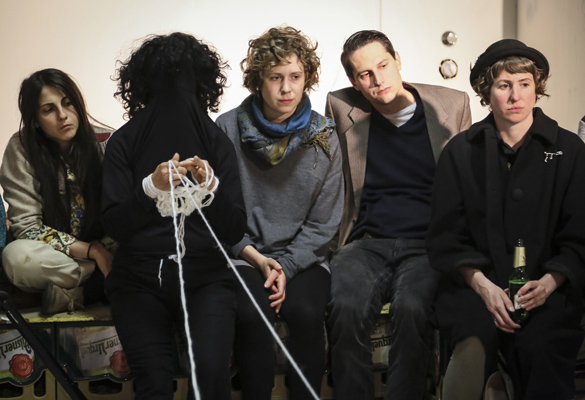
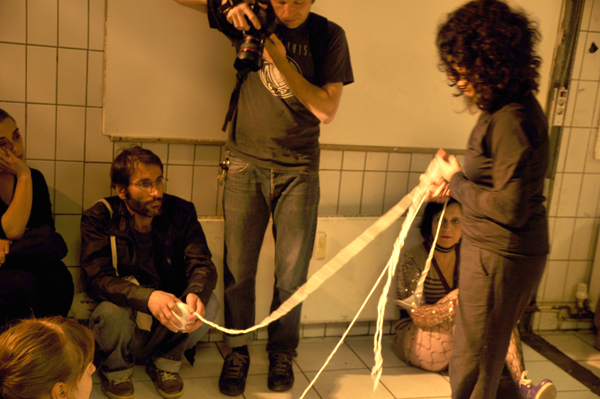
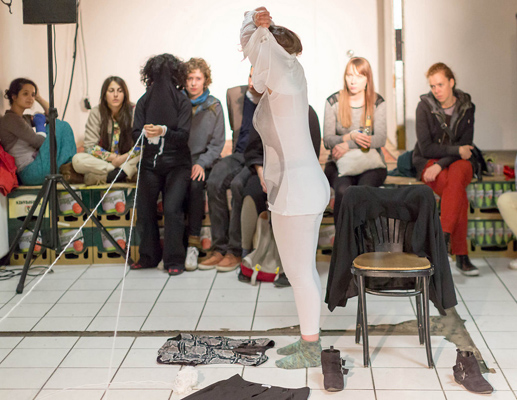
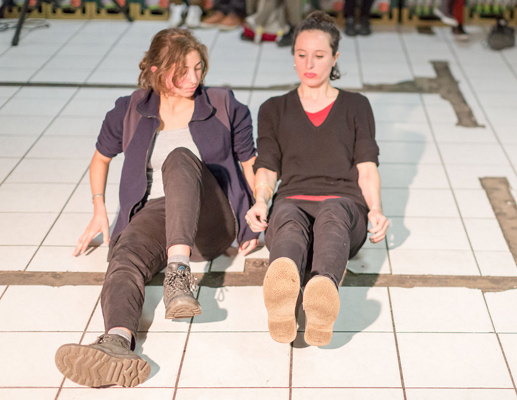
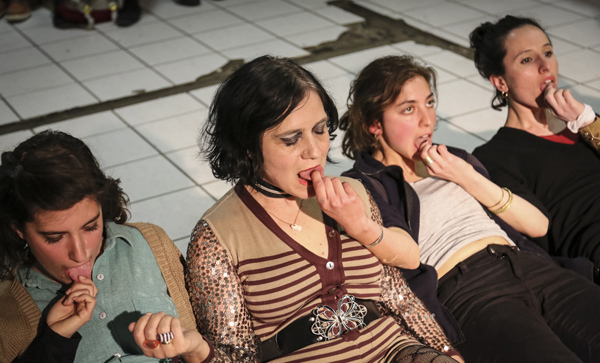
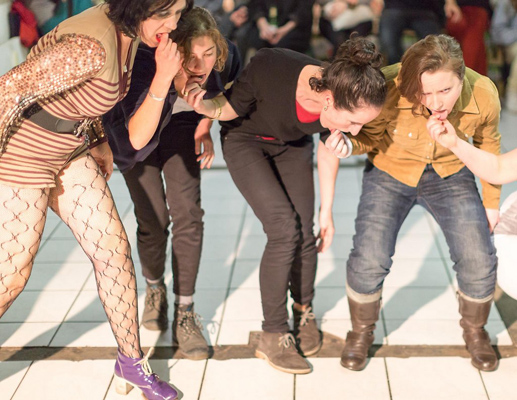
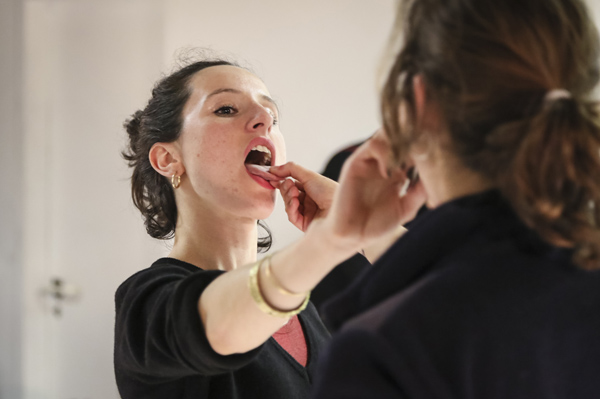
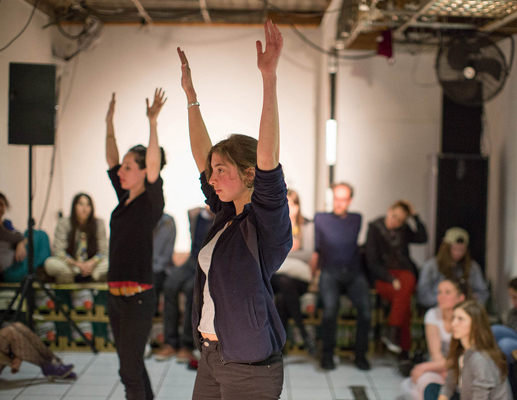
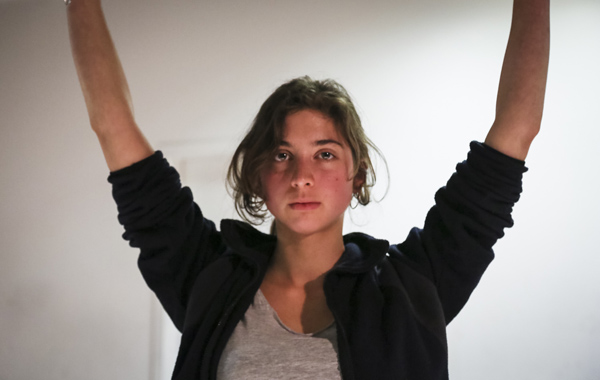
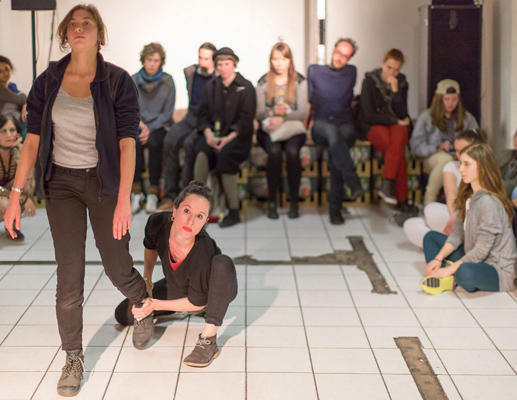
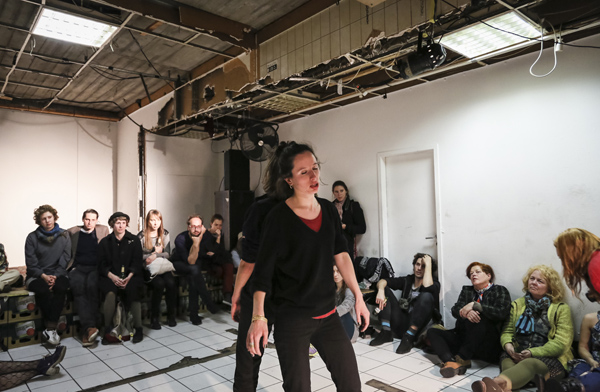
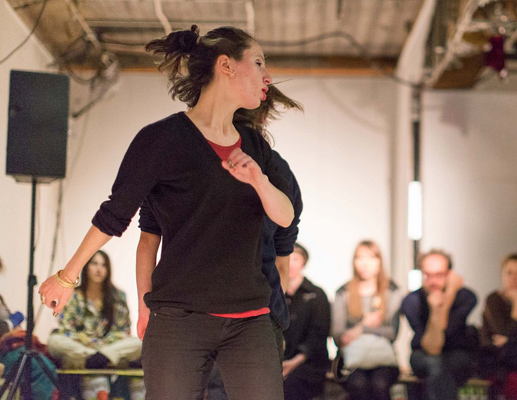
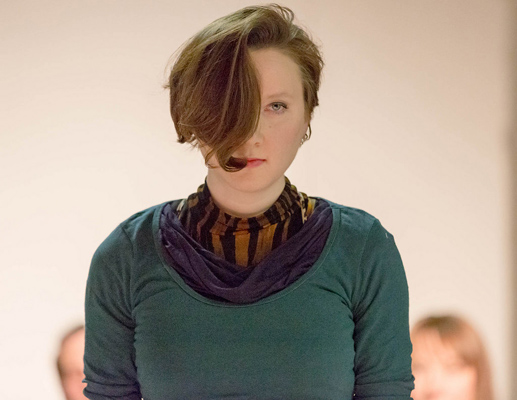
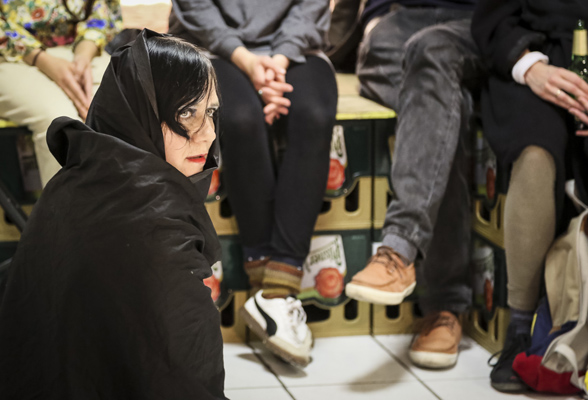
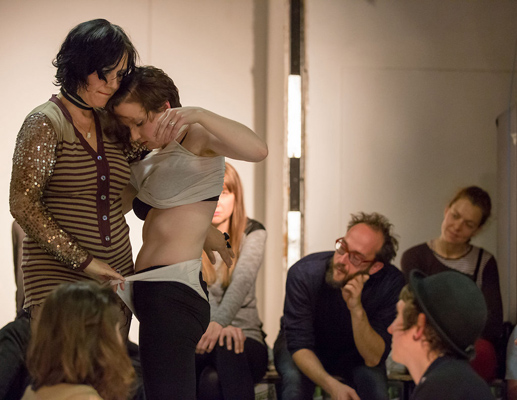
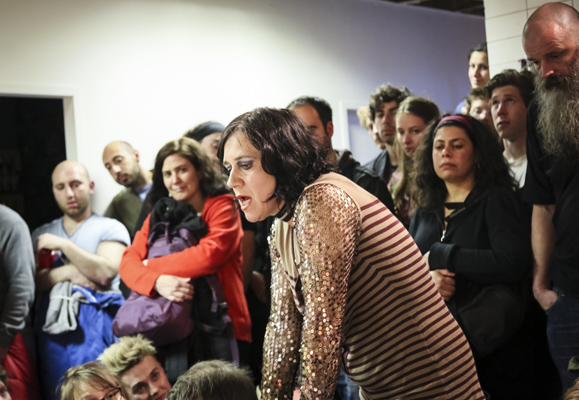
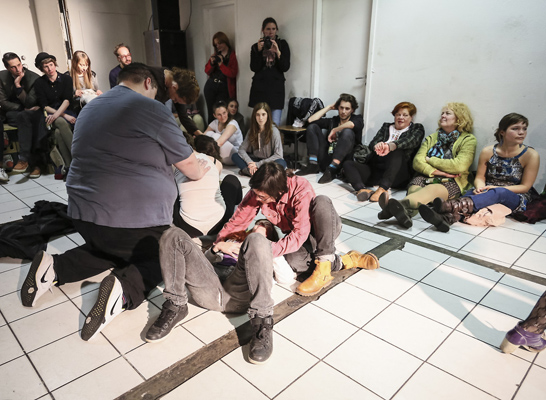
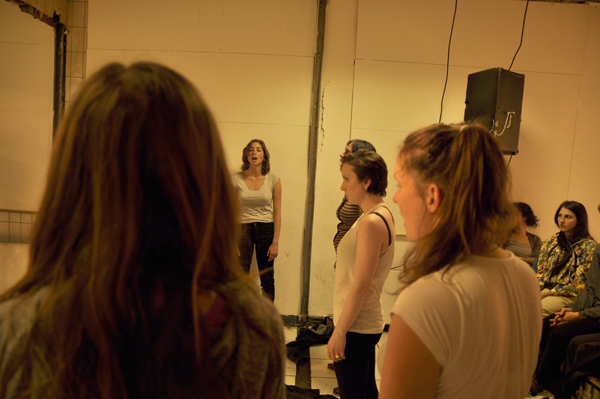
NGinPA Open Discussion
Holzmarkt, Theater der Zukunft
Hub of Month of Performance Art-Berlin
NGinPA, facilitated by Melanie Jame Wolf
Photo: Alex Slota
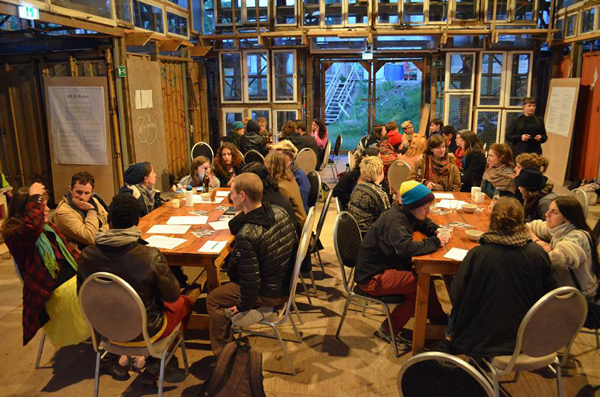
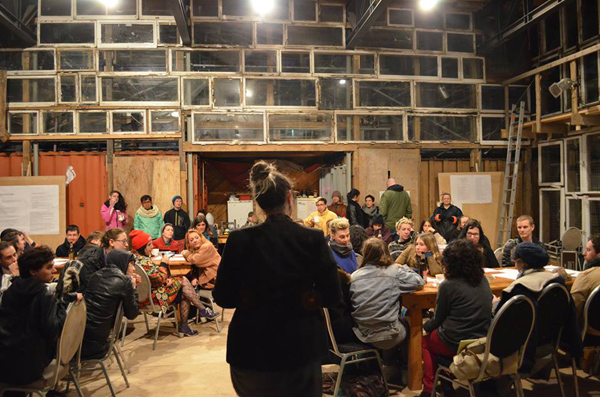
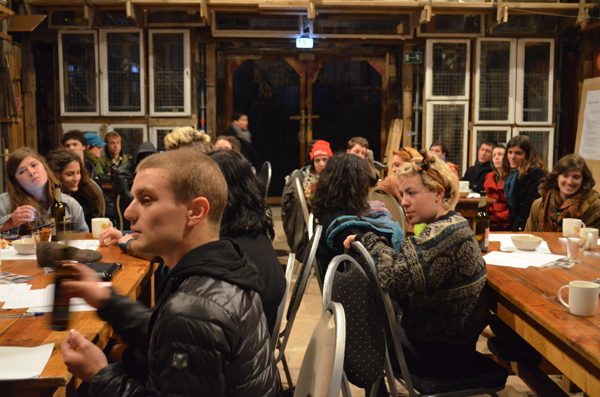
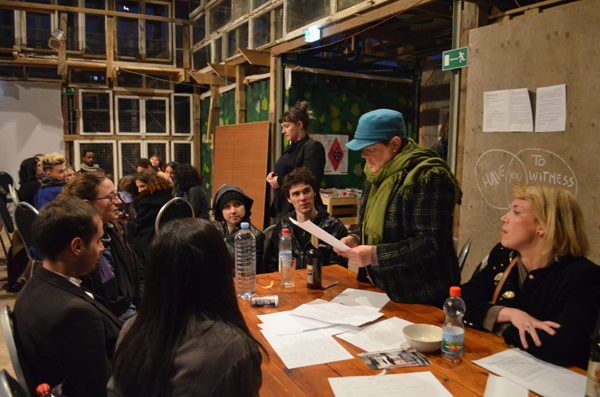
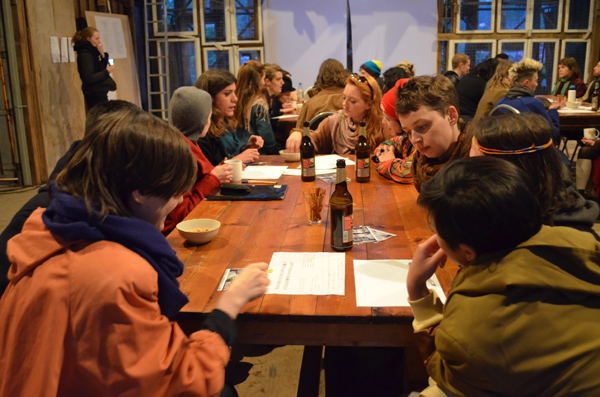
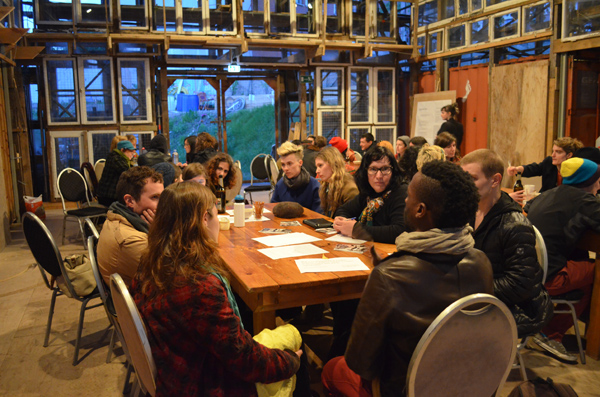
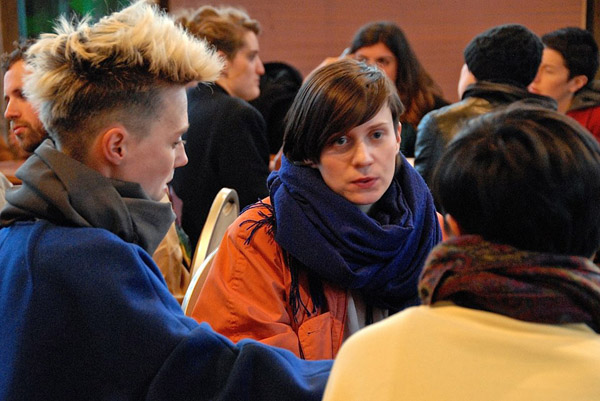
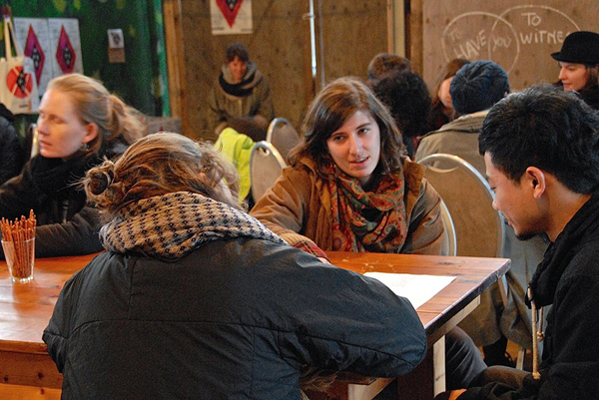
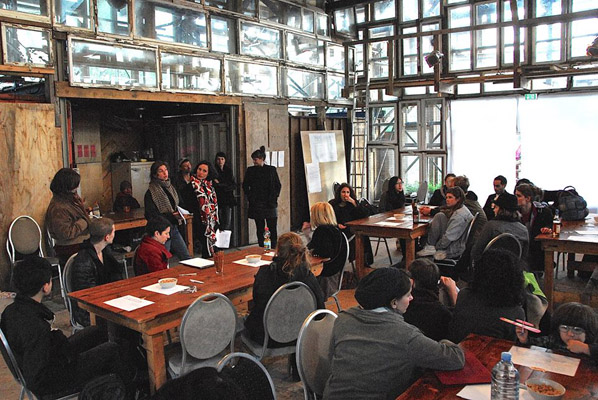
Within this context, we have brainstrormed the following questions:
What is the normative gaze? What would be an example of how it affects me personally, as a person in everyday life and as a performer/maker?
What is my responsibility as a maker, performer or audience member in relation to the normative gaze and its reproduction?
Which tools and strategies can we develop to identify, deal with and respond to the normative gaze?
What are the alternatives to the normative gaze?
What is my own normative gaze upon myself and upon others ?
How does my body internalizes or incorporates the normative gaze?
How can we work inclusively taking into consideration cultural differences and different perceptions of concepts?